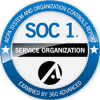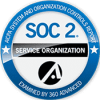Addressing social determinant risks in health care is a key to improving health outcomes for individuals and populations. This includes a process of screening for possible SDOH risks, conducting assessments that pinpoint and target specific risk areas, and referrals for interventions to address social challenges that inhibit health outcomes. Most health providers and systems of care conduct routine brief SDOH screenings. However, they do not have established workflows that detail the processes for comprehensive assessments, referrals to social services, and ongoing care coordination for the integration of physical, behavioral, and social care.
InfoMC provides technology solutions through the Incedo care coordination platform that integrates all care team workflows. This includes the development of person-centered care plans that are based on assessments and care team inputs that address current problems, goals and interventions for improved health and well-being, and the measurement and tracking of health outcomes. Effective care coordination requires that providers of physical, behavioral, and social care work together to address the needs of patients.
Addressing social determinants of health (SDOH) is challenging for provider systems. This is due in part because the services and resources necessary to address these risks fall outside of routine health care. Providers and health systems are able to screen for social risks, yet lack the comprehensive assessment tools and referral options to address them.
In support of coordinated care, InfoMC provides assessments tools to identify SDOH risks and workflows that can be adopted by care teams to integrate physical, behavioral, and social care systems. SDOH assessments build on prior screening(s) to pinpoint areas of risk and need for remediation to improve health outcomes.
As an example, the Incedo system incorporates the WellRX SDOH assessment tool into established care coordination workflows. WellRx is an 11-item tool, originally designed for primary care that can be effectively used to support ongoing care coordination and the evaluation of social risks. WellRX has an established basic 2nd grade reading level, and monitors:
• Housing;
• Transportation;
• Finance and work;
• Family supports and childcare needs;
• Education;
• Drug and alcohol use; and
• Safety
The WellRX tool can be used in conjunction with baseline health risk assessments by care management organizations, and as an ongoing measure of social risk status across all care coordination. Care managers can use these assessments to design, implement, and track care plans. The Incedo care coordination platform also has an established library of assessment tools to measure related factors of loneliness, adverse childhood experiences and trauma, and behavioral health. In addition, Incedo can be configured to incorporate other SDOH assessment tools such as PRAPARE, Accountable Health Communities tool, and Health Leads, among others. Once needs are identified, the platform supports easy referrals to community-based providers and other resources to address those needs.
An effective care coordination workflow incorporates screening and assessments to determine specific categories of social risks, and targets priority areas for interventions. The Incedo care coordination platform supports the integration of all physical, behavioral, and social care providers across care teams and care plans. A sample high-level workflow (below) details how care coordination can address SDOH risks and interventions.








